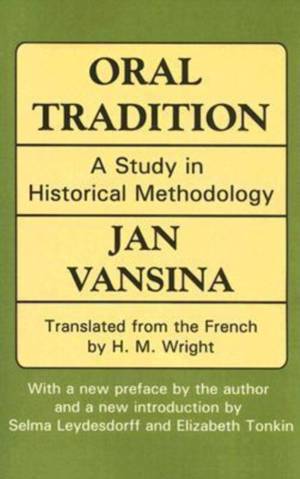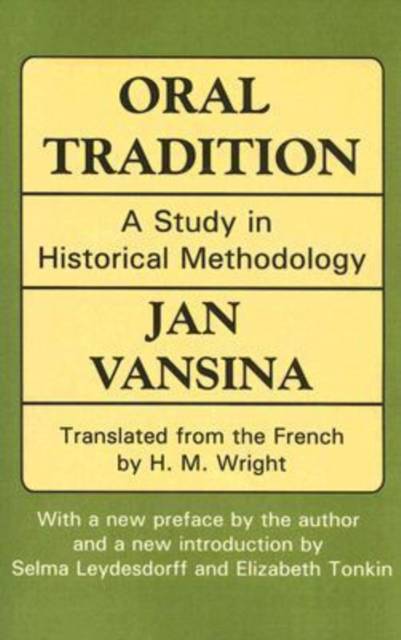
- Afhalen na 1 uur in een winkel met voorraad
- Gratis thuislevering in België vanaf € 30
- Ruim aanbod met 7 miljoen producten
- Afhalen na 1 uur in een winkel met voorraad
- Gratis thuislevering in België vanaf € 30
- Ruim aanbod met 7 miljoen producten
Oral Tradition
A Study in Historical Methodology
Robert Loring Allen, Jan VansinaOmschrijving
Oral traditions are historical sources of a special nature. Their special nature derives from the fact that they are "unwritten" sources couched in a form suitable for oral transmission, and that their preservation depends on the powers of memory of successive generations of human beings. In many parts of the world inhabited by peoples without writing, oral tradition forms the main available source for a reconstruction of the past. Do the special characteristics of oral traditions u "unwritten" information dependent on the memory of successive generations u invalidate them as sources of historical data? If not, are there means for testing their reliability? Professor Vansina shows in Oral Tradition that with knowledge of the language and of the society, the anthropologist and historian can extract or deduce the historical content of oral testimonies. Based on the author's many years of fieldwork in Africa, this definitive work explores the possibility of reconstructing the history of non-literate peoples from their oral traditions, surveys existing literature, offers a typology of oral traditions, and evaluates methods of collection and interpretation. On first publication, Daniel McCall in the American Anthropologist called Oral Tradition " a tour de force. Indeed this may well be the most significant work written on the relation of oral tradition to history in thirty yearsafor any field worker who intends to collect oral traditions, this work is indispensable."
Specificaties
Betrokkenen
- Auteur(s):
- Uitgeverij:
Inhoud
- Aantal bladzijden:
- 246
- Taal:
- Engels
Eigenschappen
- Productcode (EAN):
- 9780202308197
- Verschijningsdatum:
- 1/02/2006
- Uitvoering:
- Paperback
- Formaat:
- Trade paperback (VS)
- Afmetingen:
- 150 mm x 226 mm
- Gewicht:
- 335 g

Alleen bij Standaard Boekhandel
Beoordelingen
We publiceren alleen reviews die voldoen aan de voorwaarden voor reviews. Bekijk onze voorwaarden voor reviews.











